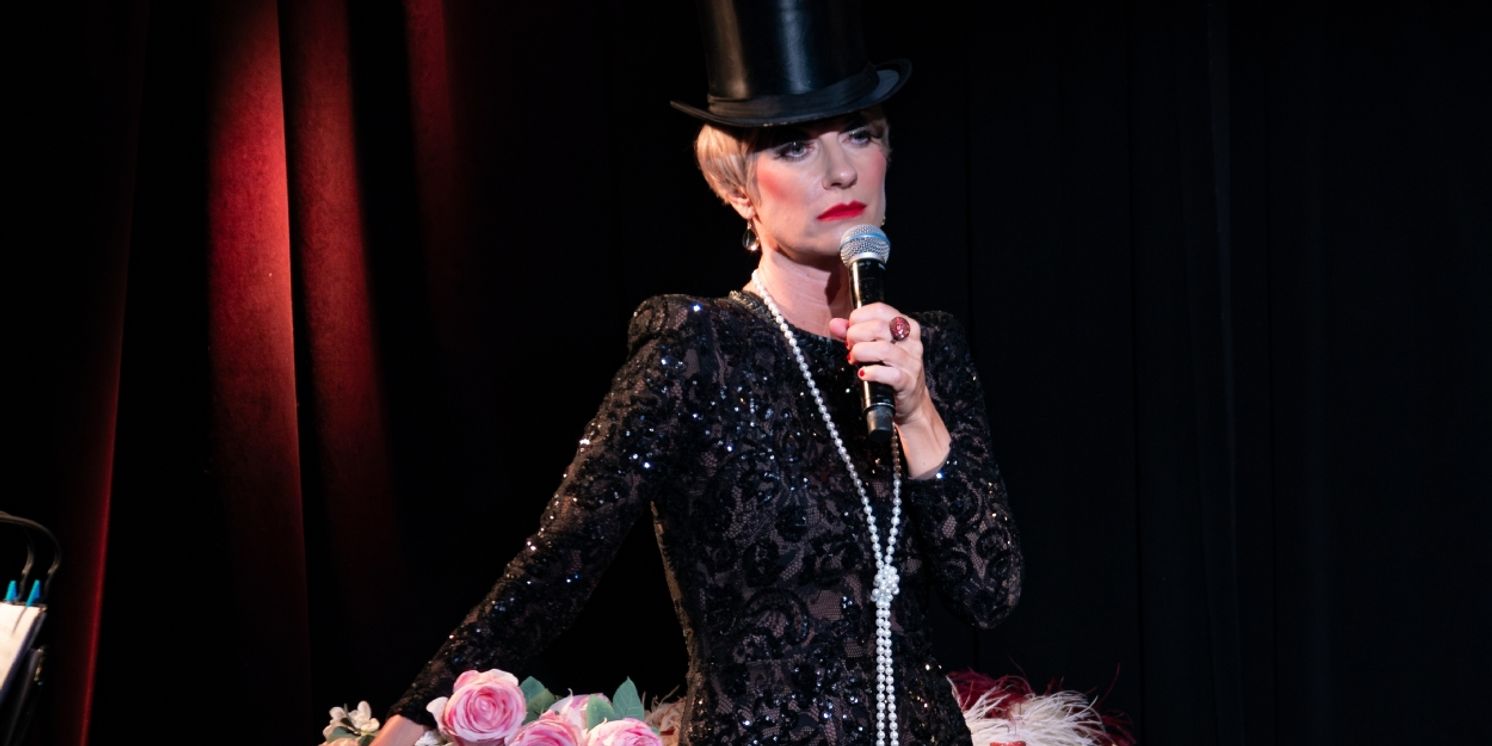Review: Adrienne Haan Brings the Fire of Weimar Berlin to NYC
The chanteuse told a tale of divine decadence at the Triad Theater on May 21st

The exaggerated red glow of the empty stage at Between Fire & Ice, A Diabolical Weimar Berlin Kabarett at The Triad Theater on May 21, 2024 emphatically symbolized the “heat” of the scandalous performances seen during the decadent Weimar Republic of the 1920’s and early 30’s The show this evening, one of the final performances in Carnegie Hall’s festival, Fall of The Weimar Republic: Dancing on the Precipice, gave the audience an upfront and personal insight into the “Golden Age” of German arts and culture during this brief, yet important period in history.
The stage lights of the cozy venue brightened as the fair-haired chanteuse, Adrienne Haan, slinked onto the stage attired in a black sparkling jumpsuit with matching heels to begin her show. With a grand piano and sparse chair and table covered with red velvet throws and lit candles the scene appeared to this reviewer to be the epitome of the “divine decadence” we all remember from the iconic and stylized Bob Fosse film, Cabaret. A bouquet of pink roses tossed carelessly on the piano to my mind, symbolized the frailty of the beauty of the Weimar Republic.
Singing in both German and English, the German-Luxembourgish artist used her powerful vocals to tell the tale of the fledgling birth of democracy in Germany that existed between the two World Wars. A time of a republic created on the backs of a generation of broken German men who came home disfigured, disabled and dehumanized from The Great War. Now, women saw the chance to grab the freedom to vote, to enjoy life and to come into their own. Berliners started a love affair with everything American - jazz, films, and especially the famed Johnny Weissmuller and his “Tarzan” yell! Everyone enjoyed the openness of society from all religions, ethnicities and sexual orientations. Performers such as Marlene Dietrich in her scandalous film The Blue Angel epitomized the era as a decadent and erotic moment in time. One which quickly fell into the volcanic explosion of repression marked by the arrival of the Nazi government.
Haan mesmerized this reviewer and the filled-to-capacity audience with her intense and belting vocals. Her songs personified many of the cultural issues of the period. “Alles Schwindel” spoke of how the German people distrusted not only their politicians but each other. Decked out in Dietrich’s trademark top hat, Haan crooned “Ich Bin von Kopf bis Fub auf Liebe eingestellt” or “Falling In Love Again,” which was the signature song of The Blue Angel and told of erotic love. Her rendition of the Cole Porter classic, “What Is This Thing Called Love” wowed theatergoers. Other standout performances included: "Allein in einer groben Stadt,” “Nannas Lied," and “Heute Nacht oder nie."
LIke the legend that was Weimar Germany, the evening came to an end too soon. The curtain came down on the make believe Berlin “Kabarett” as quickly as the Nazis put an end to the unrestrained rights of that “Golden Age” of Germany in 1933.
Between Fire & Ice, A Diabolical Weimar Berlin Kabarett featured the phenomenal Triad Theater’s artist-in-residence Adrienne Haan, accompanied on the piano by her musical director, Richard Danley.
Find great shows to see on The Triad Theater website here
Learn more about Adrienne Haan on her website.
Reader Reviews
Videos

